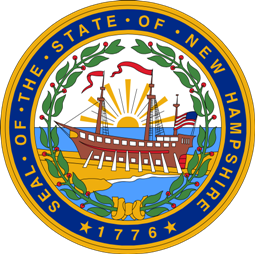A Brief History of New Hampshire Presidential Primary Write-In Votes
More than six percent of Granite State Democratic presidential primary voters have opted to write in a candidate’s name over the last 80+ years

While “Joe Biden” will be an easier name for voters to write in than, say, “Lisa Murkowski,” the president’s campaign is now in the uncomfortable position of quasi-campaigning in a state where they had agreed not to participate and instead abide by the DNC decision to make South Carolina this cycle’s first-in-the-nation primary state.
Over the decades since 1952, when voters in the New Hampshire primary began selecting presidential candidates on the ballot (instead of the names of delegates pledged to candidates), there have been hundreds of thousands of write-in votes cast.
A total of 283,346 write-in votes have been tallied across the 18 primaries conducted from 1952 through 2020. Out of 4,887,282 total votes, write-ins have accounted for 5.8 percent. Write-ins account for 6.3 percent of Democratic primary votes and 5.3 percent of GOP primary votes.
During this period, major party write-in candidates have received double-digit support six times including two primary victories.
In 1964, President Lyndon Johnson won 29,317 write-in votes (95.1 percent) on the Democratic side while his Ambassador to South Vietnam – Henry Cabot Lodge, Jr. – won the Republican primary with 33,007 votes (35.6 percent). [Lodge stated at the time he was not a candidate due to U.S. Foreign Service regulations].
In that same GOP primary, former Vice President Richard Nixon received 15,587 write-in votes (16.8 percent).
Four years later, President Johnson famously only won a plurality of the Democratic primary vote with 49.6 percent (27,520 votes) – just 7.7 points ahead of the only candidate on the ballot, Minnesota U.S. Senator Eugene McCarthy. Johnson withdrew from the race before the end of the month.
In the 1968 GOP primary, New York Governor Nelson Rockefeller won 10.8 percent as a write-in candidate – good for second place but more than 75 points behind Nixon whose name was on the ballot.
The only other major party candidate to win double-digit support as a write-in candidate in the New Hampshire primary was former Illinois Governor Adlai Stevenson II, who received 14.8 percent (3,806 votes) against Tennessee U.S. Senator Estes Kefauver – the only candidate on the 1956 Democratic primary ballot that cycle.
It should be noted that the New Hampshire Secretary of State tallies write-in votes on Democratic ballots for Republican candidates and vice-versa.
Over the last 40 years, the overwhelming majority of the 20 write-in candidates who have received one percent or more of the Democratic or Republican primary vote fall into this category. For example:
- 1984 Democratic primary: President Ronald Reagan won 5.0 percent
- 1984 Republican primary: Colorado U.S. Senator Gary Hart (5.3 percent)
- 2004 Republican primary: Massachusetts U.S. Senator John Kerry (4.2 percent)
- 2012 Democratic primary: Texas U.S. Representative Ron Paul (3.8 percent)
The few exceptions have been:
- 1992 Democratic primary: New York Governor Mario Cuomo (3.9 percent)
- 2020 Democratic primary: Former New York Mayor Mike Bloomberg (1.6 percent)
[Also in 1992, consumer advocate Ralph Nader received 1.9 percent in the GOP primary and 1.8 percent in the Democratic race].
It should also be noted that the 1996 New Hampshire Libertarian primary also saw seven Republicans and one Democrat win more than one percent of the write-in vote, led by Virginia’s Pat Buchanan with 10.9 percent.
Follow Smart Politics on X/Twitter.
